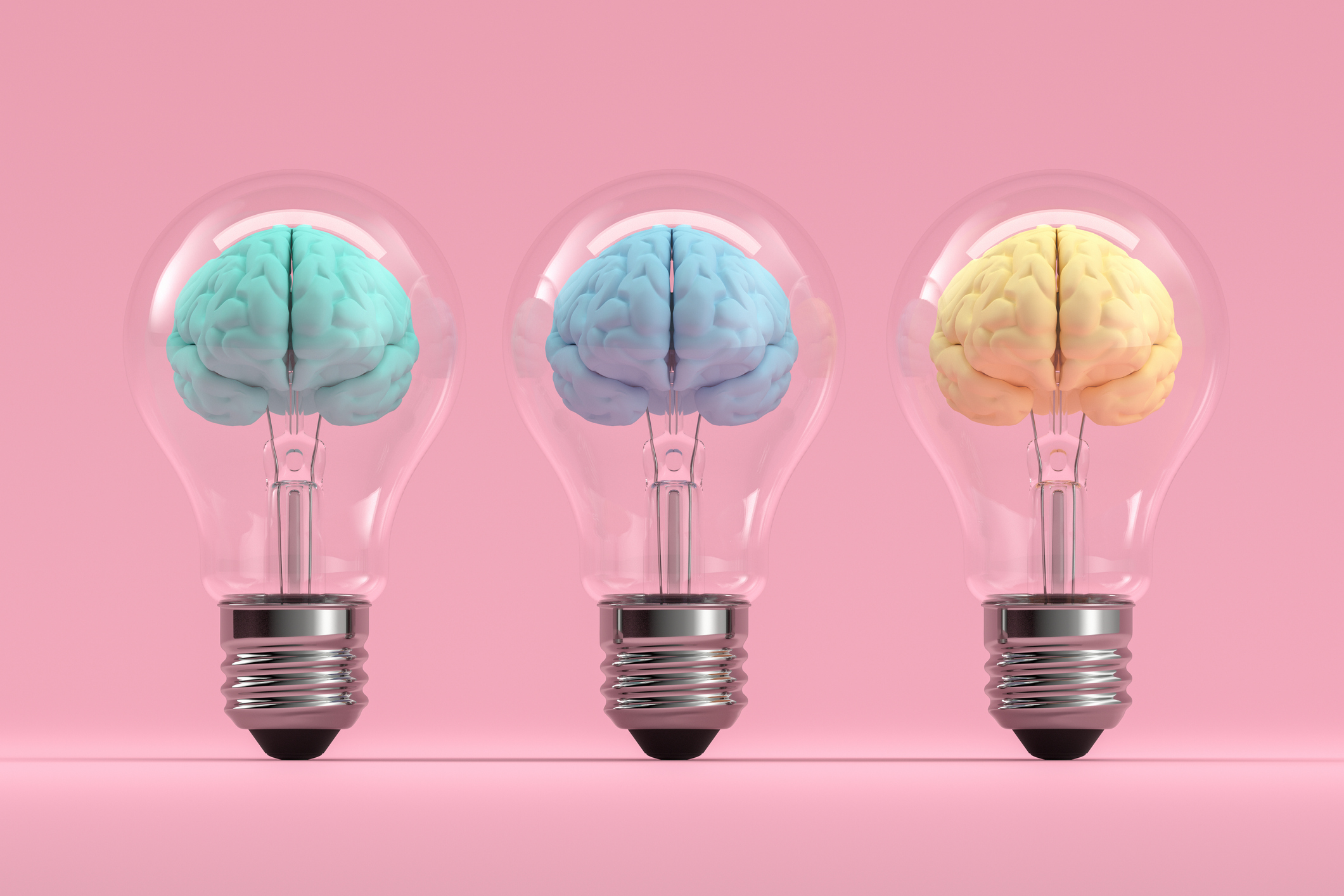Statistically speaking, I was not supposed to end up like this...



By Tawheedah Abdullah
In the words of Langston Hughes, “Life for me ain’t been no crystal stair.” Every so often, I re-read the journals I filled up in early adolescence— the pages saturated with notes of depression, angst, low self esteem, feelings of isolation, and other inharmonies. I read them through blurry, tear-filled eyes, for they are simultaneous reminders of how far I’ve come and what I’ve endured to earn this life.
Statistically speaking, I was not supposed to end up like this. My mother made many sacrifices to ensure that her three young children had access to the American Dream. Where she fell short, my grandparents, aunts, uncles, and cousins stepped in. It truly takes a village. That said, growing up in a single-parent minority household that relied on free-reduced lunch decreased the likelihood of me receiving a high school diploma, let alone a doctoral degree. In fact, as family income decreases, child problem behaviors and social-emotional deficits increase, making students more susceptible to high school dropouts, achievement deficits, and unfulfilling personal lives (CSAT, 2014 Gershoff et al., 2007; Thornberry et al., 2003).
One might say that I have beaten the odds, yet I possess no innate brilliance or unique trait that separates me from the millions of children in America who fall victim to poverty-related struggles.
After years of gratitude and reflection, I have retraced my steps and come to realize that there is a major element of my upbringing that has given me the impetus to lead a fulfilling life: an intimate relationship with music.
I started off making songs out of anything- tapping rhythms on tables and singing acapella when no one was watching. My family noticed my inclination and nurtured the musician in me. When I was 13, my jazz-loving grandparents bought me my first saxophone. At 15, my mother bought me my first acoustic guitar. For hours, I locked myself away, writing songs about love, heartbreak, sadness, hope, and all the other emotions swirling around in my early-adolescent brain. My throat chakra cleansed itself as I sang. I engaged in the somatic process of putting pen to paper, filling journals upon journals up with compositions. I blasted cassette tapes of Coltrane, Miles, and Bird, feeling the pain release from my body as my reed vibrated along with the smoky, velvety notes that filled my room. I played and I disappeared. I forgot about my physical body and my busy mind and became lost in a delicious synesthesia when I closed my eyes. It was my therapy.
In 9th grade, I joined the band at my predominantly white high school and (finally) felt a sense of belonging among my peers. Although we had families in different tax brackets, we bonded over music and the shared purpose that we felt as components of an ensemble contributing to something greater than ourselves. Research on the benefits of music education echo my experiences. Participation in music performance groups causes students to experience an increase in self-esteem and self-worth as well as social cooperation, and communication (Adderley et al., 2003; Heyworth, 2013; Hietolahti-Ansten & Kalliopuska’s, 1991; Ritblatt et al., 2013; Shin, 2011).
I am indebted to music. It has been my anchor for years. When it was time for me to decide what I wanted to do after high school, I put all my eggs in one basket and auditioned to join the FAMU Jazz Studies program. I received a full ride, and my life has been a steady incline up “the highest of 7 hills” ever since. Through music, I met many sisters, uncles, aunties, grandparents, cousins, and friends. Most importantly, I met myself. I would be blindly optimistic to assert that music removed all of my problems, but participation in music ensembles helped me learn invaluable skills and values that I transfer to other assets of my existence— skills and values that comprise the foundation upon which I have built a life for myself. Among them, discipline, self-assurance, communication, empathy, resilience, sacrifice, excellence, determination, character, ambition, and altruism, to name a few.
In 2021, I studied the ways students at 100% free-reduced lunch schools make sense of their musical experiences and perceptions as well as the way they view the significance and relevance of school music program participation (Abdullah, 2021). I made the following discoveries:
1. Students value band program participation as a way to become a member of a supportive social network that contributes to a high-quality high school experience. They make meaningful connections with their peers and their instructors, experience a sense of belonging, obtain emotional and academic support, and experience feelings of belonging and unity.
2. Students enjoy engaging with content that is fun, uplifting, exciting, and challenging. They feel a sense of accomplishment and stronger sense of unity after mastering difficult passages together. They feel embraced by their communities and make emotional and cultural connections to the music they engage with.
3. Students view music program participation as an entity that sets them up for success beyond high school. To combat their economic situations, many use music as a vehicle to gain acceptance into college, gain financial assistance, and access opportunities and experiences that give them the ability to lead choice-filled lives. Through participation in their school band, they were able to visit college campuses, network with college students and faculty music program directors, and gain skills that will contribute to their future success. This helped them develop institutional knowledge and allowed them to see themselves as people who are worthy and capable of college success.
As you can imagine, these discoveries were affirming for me. I saw myself in the students I spoke with, and I’ll never forget the beautiful melodies they strummed across my heart strings. These students gifted me with invaluable discoveries about the benefits of music program participation, and this article is one of the ways I am paying these gifts forward. Educators, I gift you several questions, and I charge you to reflect deeply and intentionally upon them.
- What can you learn from the structure, pedagogy, and content of music education programs that can be transferred into other disciplines?
- How can you create classroom environments where students are smiling, laughing, enjoying themselves, and becoming stronger together while tackling challenging content?
- In what ways can you foster a sense of belonging among students from diverse socioeconomic backgrounds?
- What can you do to ensure that your students walk away from your classes feeling a stronger sense of self-worth?
- How might you ignite passion, excitement, and a commitment to something greater than oneself in your classroom or school community?
- How might you integrate therapeutic elements into your content, and who in your school community might benefit from this approach?
- What opportunities do students have to build skills that will be advantageous for them in their post-secondary endeavors?
As you interact with your students this year, keep in mind that they may be arduously climbing their own not-so-crystal stairs. Be a source of joy for them. Be the thing that makes them smile. Be a comforting escape. Be a guide that helps them navigate home to themselves.
Abdullah, T. B. U. (2021). Beyond the Notes and Rests: A Study of African American High School Students' Musical Experiences, Preferences, and Perceptions. Retrieved from https://purl.lib.fsu.edu/diginole/2020_Summer_Fall_Abdullah_fsu_0071E_16363
Adderly, C., Kennedy, M., & Berz, W. (2003). “A home away from home”: The world of the high school music classroom. Journal of Research in Music Education, 51(3), 190-205. doi:10.2307/3345373
Center for Substance Abuse Treatment. (2014). Trauma-informed care in behavioral health services. Rockville, MD: U.S. Department of Health and Human Services, Substance Abuse and Mental Health Services Administration, Center for Substance Abuse Treatment. Retrieved June 16, 2018, from https://www.ncbi.nlm.nih.gov/books/NBK207191/.--
Gershoff, E. T., Aber, J. L., Raver, C. C., & Lennon, M. C. (2007). Income is not enough: Incorporating material hardship into models of income associations with parenting and child development. Child Development, 78(1), 70-95. Retrieved March 6, 2019, from https://www.ncbi.nlm.nih.gov/pmc/articles/PMC2835994/.
Heyworth, J. (2013). Developing social skills through music: the impact of general classroom music in an Australian lower socio-economic area primary school. Childhood Education, (4), 234. Retrieved from https://login.proxy.lib.fsu.edu/login?url=http://search.ebscohost.com/login.aspx?direct=true&db=edsgao&AN=edsgcl.338522437&site=eds-live
Hietolahti-Ansten, M., & Kalliopuska, M. (1990). Self-esteem and empathy among children actively involved in music. Perceptual & Motor Skills, 71, 1364–1366. https://doi-org.proxy.lib.fsu.edu/10.2466/PMS.71.7.1364-1366
Ritblatt, S., Longstreth, S., Hokoda, A., Cannon, B.-N., & Weston, J. (2013). Can music enhance school-readiness socioemotional skills? Journal of Research in Childhood Education, 27(3), 257–266. Retrieved from https://doi-org.proxy.lib.fsu.edu/10.1080/02568543.2013.796333
Shin, J. (2011). An investigation of participation in weekly music workshops and its relationship to academic self-concept and self-esteem of middle school students in low-income communities. Contributions to Music Education, 38(2), 29–42. Retrieved from https://login.proxy.lib.fsu.edu/login?url=http://search.ebscohost.com/login.aspx?direct=true&db=eric&AN=EJ1052994&site=eds-live
Thornberry, T. P., Freeman-Gallant, A., Lizotte, A. J., Krohn, M. D., & Smith, C. A. (2003). Linked lives: The intergenerational transmission of antisocial behavior. Journal of Abnormal Child Psychology, (2), 171. Retrieved from https://login.proxy.lib.fsu.edu/login?url=http://search.ebscohost.com/login.aspx?direct=true&db=edsbl&AN=RN127289165&site=eds-live&scope=site
Tawheedah Abdullah, Ed. D.
Director, CSET School Leaders Program
Center to Support Excellence in Teaching (CSET)
Graduate School of Education
Stanford University
This article was crafted by Tawheedah Abdullah, Ed. D., an independent contributor engaged by CheckIT Labs, Inc. to provide insights on this topic.

Dr. Tawheedah Abdullah
Education practitioner, Musician, Poet, Mother, and Social Justice Warrior
See All Articles
Dr. Tawheedah Abdullah is an education researcher, practitioner, musician, poet, and mother. Holding a doctorate in Educational Leadership and Policy, she serves in critical roles across the education system, working to improve outcomes for historically underserved students. Her passion currently guides her work as the Technical Assistance Lead at the Southern Education Foundation's Equity Assistance Center–South.



